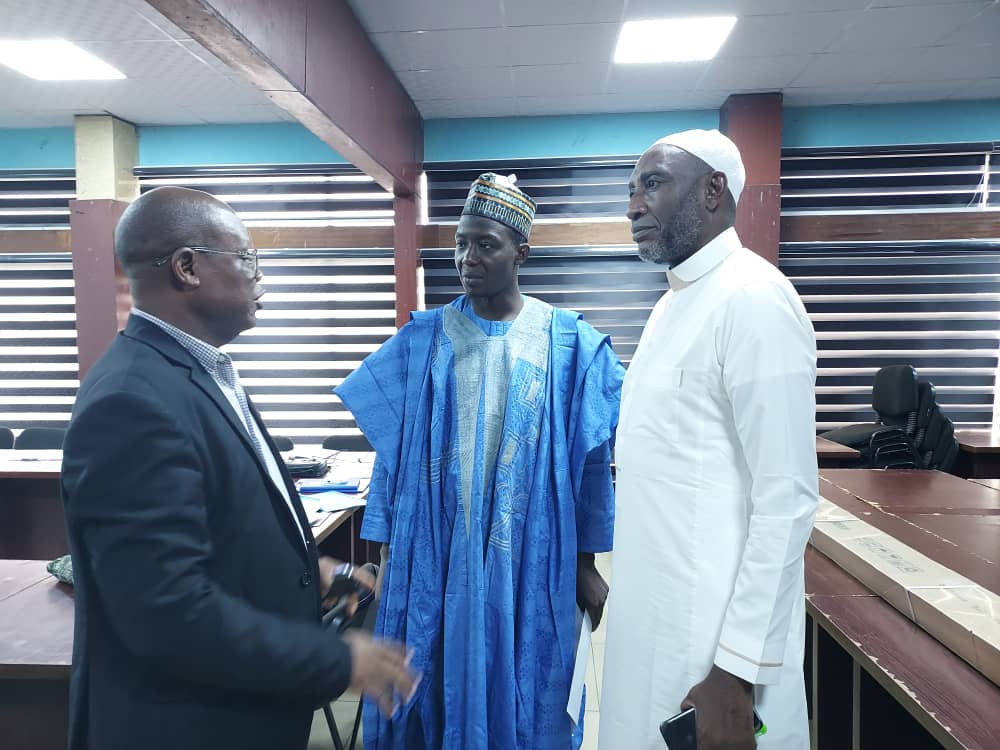As AI redefines how we think, speak, and even pray, Nigerian clerics are stepping forward to ensure that faith doesn’t become an afterthought in a machine-driven world.
By Bunmi Yekini

Artificial Intelligence is quietly reshaping everything, from justice systems to journalism, education to healthcare. But in Nigeria, one of the most profound questions is now echoing through the walls of mosques and churches: What happens when AI starts interpreting scripture?
That’s the question propelling a rare coalition of Christian and Muslim leaders into action in an unprecedented partnership. The event, jointly organized by the Christian Council of Nigeria (CCN) and Jama’atu Nasril Islam (JNI), with facilitation by the CCN Institute of Church and Society and support from the Future of Life Institute (USA), was more than just training. It was a clarion call for Nigeria’s religious voices to shape how AI is understood, preached, and regulated.
“If religious leaders are going to use AI, then they must understand it, not fear it, not misuse it, and definitely not quote scripture that AI sourced from the wrong context,” said Yusuf Ahmed Bida, Administrative Secretary of JNI. “We’re doing this homework now so our voices are not sidelined when the national policy is finalized.”
The training, titled the Nigeria Religious Coalition on Artificial Intelligence, aims to prepare clerics to serve as ethical ambassadors of AI in their communities. It also hopes to embed moral and spiritual values into Nigeria’s official AI policy, a policy still in development.
“This is not about blessing machines. It’s about ensuring that morality doesn’t get lost in the code,” explained Very Rev. Kolade Fadahunsi, Director of the CCN Institute. “Religious leaders have long guided communities through change. AI is just the newest terrain we must understand.”
Across denominations and states, participants included bishops, moderators, imams, and church leaders, from the Chief Imam of Imo Mosque to the leadership of the Presbyterian, Baptist, and Methodist churches. They didn’t just talk; they mapped out real plans aimed at influencing Nigeria’s national AI policy.
“In other countries, we’ve already seen AI misfire,” noted Bida. “A case in America had a lawyer rely on AI for court references, only to find out the citations were completely fabricated. He was sanctioned. Now imagine that happening in a religious context.”
For Rev. Dr. Ephrahim Yakubu Simeon, who joined virtually from Jos, AI’s growing role in daily life isn’t something religious institutions can ignore. “The risk isn’t just in using AI; it’s in using it without discernment,” he warned. “We must be proactive, not reactive.”
Also speaking at the training Philip Jakpor, Executive Director of Renevlyn Development Initiative (RDI), challenged participants to think deeply about ethical boundaries: “Technology has no soul. That’s our job, to provide it with conscience, context, and clarity.”
Responding to the question of why the initiative focuses primarily on Islam and Christianity in a secular state. Fadahunsi said: “These are the most structured religious systems in Nigeria. We’re starting with what’s accessible, but we’re not excluding others. The goal is inclusive, eventually.”
The training wasn’t only talk. Participants were split into groups to design communication strategies to further push the initiative. The coalition is also crafting an AI handbook tailored to religious settings and preparing to gather 500 signatures for an advocacy push to the Ministry of Communication and other relevant agencies.
The Nigeria Religious Coalition on Artificial Intelligence isn’t stopping at dialogue. Their roadmap includes quarterly engagements, national consultations with AI regulatory bodies, and ultimately, shaping how AI aligns, or conflicts, with Nigerian spiritual values.
Because in a world increasingly guided by machine logic, human morality must not be an afterthought.
“We can’t allow algorithms to become our theologians,” Fadahunsi said quietly. “Faith must lead, not follow.”
